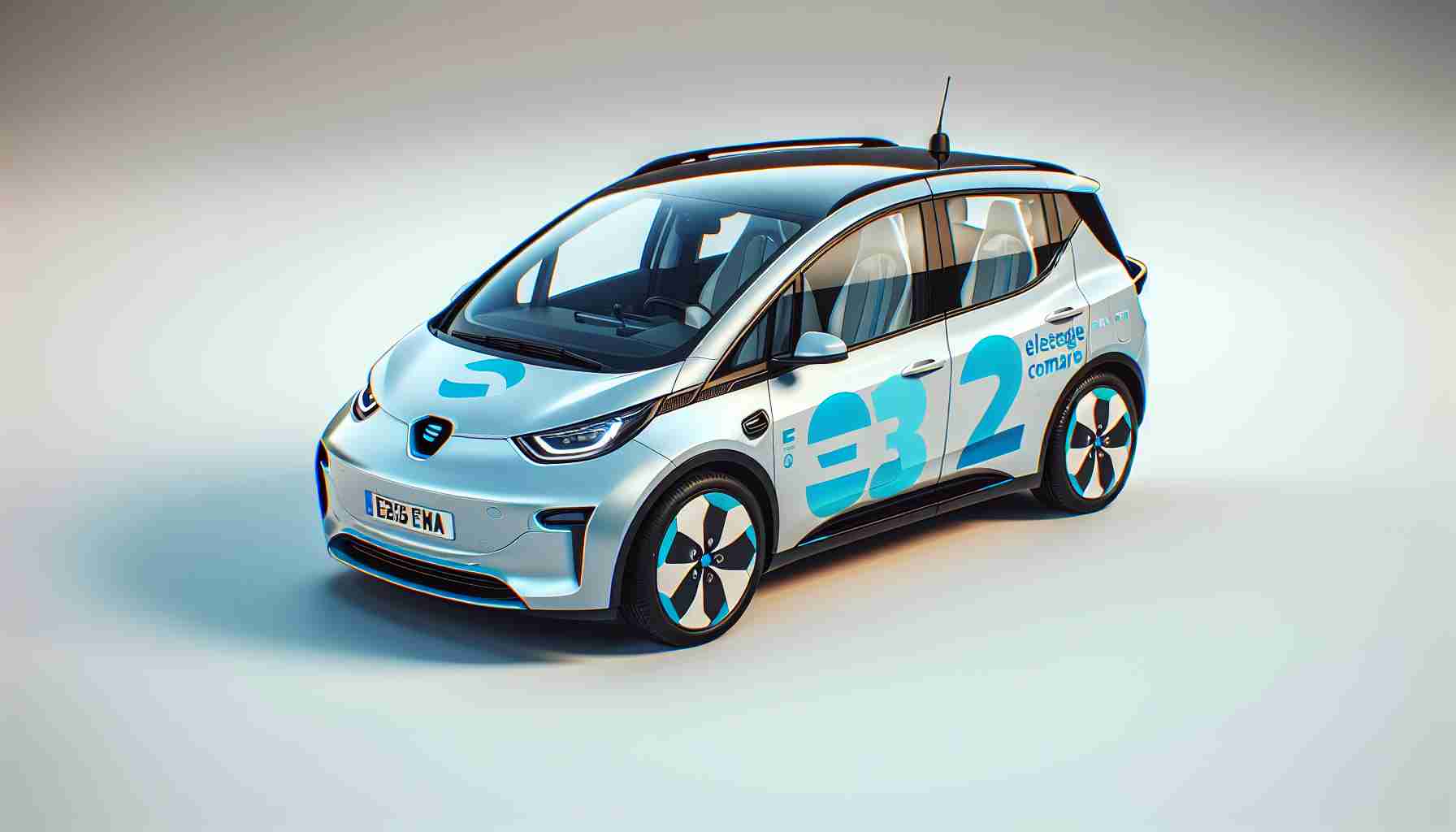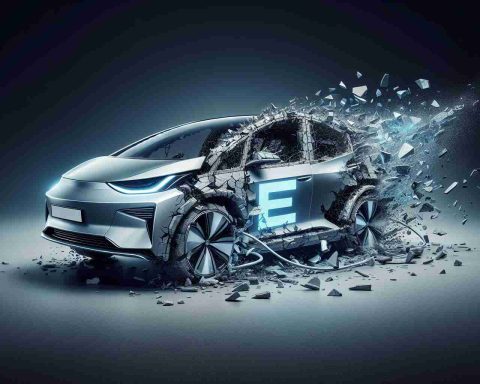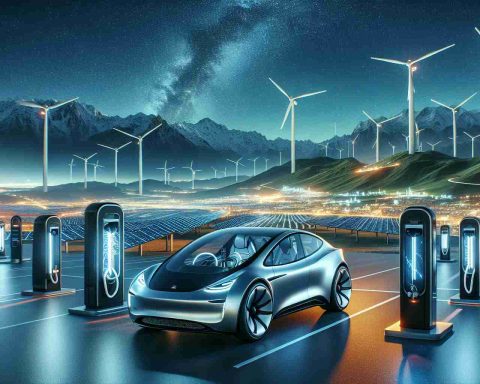Innovative Steps Toward Sustainability
BT Group, a leading British telecom provider, has just announced an ambitious plan to enhance its commercial fleet by introducing an additional 3,500 electric vehicles (EVs) over the next two years. This initiative will not only increase its total number of EVs to 8,000 but also establish it as the UK’s largest electric vehicle fleet.
With a commercial vehicle fleet exceeding 27,000, BT Group stands as one of the foremost fleet operators in the country. The company has set a target to achieve full carbon neutrality by 2031, aiming to transition nearly all of its vehicles to electric within the next five years, thus showcasing its dedication to a sustainable future.
The newly added EVs will come from renowned manufacturers such as Ford, Stellantis, Toyota, and Renault. Executives at BT Group believe that this strategic enhancement will provide the necessary tools to expedite the rollout of high-speed fiber internet across the UK.
The company’s Chief Financial Officer emphasized the significance of this transition, stating that increasing EV integration is a crucial step toward minimizing their carbon impact while contributing to the national movement towards sustainability. BT Group has also expressed its support for the UK’s proposed 2030 ban on internal combustion engine vehicles, receiving commendation from political leaders backing eco-friendly initiatives.
With strong incentives driving the commercialization of EVs, BT Group’s initiative signals a promising shift towards a greener transportation sector in the UK.
Broader Implications of BT Group’s EV Initiative
BT Group’s commitment to expanding its electric vehicle fleet serves as a microcosm of a transformative trend in global industries toward sustainability. This initiative not only reflects the growing corporate responsibility but also signifies a pivotal shift in the corporate landscape that can inspire other companies to pursue similar paths. As firms respond to climate change with proactive measures, they contribute to a larger cultural milieu that prioritizes environmental stewardship, bolstering the notion that businesses can successfully integrate profitability with sustainability.
The potential economic ramifications are significant. The increased adoption of electric vehicles (EVs) could stimulate innovation in electric infrastructure, creating new jobs in manufacturing, maintenance, and technology development. Furthermore, embracing EVs could lead to a decrease in fossil fuel dependency, aligning with global efforts to mitigate the impacts of climate change and reduce greenhouse gas emissions.
Environmentally, BT Group’s initiative is expected to lower transport-related emissions substantially. With transportation accounting for nearly a quarter of total carbon emissions in the UK, the transition to a sizable EV fleet is a substantive endorsement of cleaner transport solutions, aligning with the UK’s commitment to achieving net-zero carbon emissions by 2050.
Over the coming years, we can anticipate a notable shift toward more comprehensive strategies embracing sustainability across various sectors. As consumer demand for green alternatives grows, the ripple effect of BT’s actions could redefine industry standards, encouraging nations worldwide to prioritize green technologies, ultimately fostering a resilient global economy focused on sustainable growth.
BT Group’s Bold Leap into Electric Mobility: A Sustainable Future Awaits
Introduction to BT Group’s Electric Vehicle Initiative
BT Group, recognized as a premier telecommunications provider in the UK, is setting a transformative precedent in sustainable transport. With the announcement of incorporating 3,500 new electric vehicles (EVs) into its fleet, the company is on track to elevate its total EV count to 8,000, thus establishing itself as the largest electric vehicle fleet operator in the nation.
Fleet Expansion and Sustainability Goals
Currently boasting a commercial vehicle fleet comprising over 27,000 vehicles, BT Group is making significant strides toward environmental stewardship. Their ambition is firmly directed at achieving complete carbon neutrality by 2031, with a decisive plan to convert nearly all their vehicles to electric within the upcoming five years. This initiative highlights a broader commitment to sustainability and aligns closely with global climate goals.
EV Manufacturers and Technological Integration
BT Group’s expansion will feature EVs from industry-leading manufacturers, including Ford, Stellantis, Toyota, and Renault. This partnership not only reflects BT’s commitment to reliable technology but also ensures that its fleet is equipped with advanced features that will facilitate high-speed fiber internet deployment across the UK. Enhanced connectivity is crucial for supporting remote work and digital services, thereby boosting the economy.
Pros and Cons of the Initiative
# Pros:
– Reduction in Carbon Emissions: Transitioning to an electric fleet significantly lowers greenhouse gas emissions.
– Leadership in Sustainability: BT reinforces its position as a frontrunner in eco-friendly practices within the telecom sector.
– Support for National Goals: Aligning with the UK’s 2030 ban on internal combustion engines contributes to broader environmental objectives.
# Cons:
– High Initial Investment: Transitioning to an electric fleet requires substantial upfront costs.
– Charging Infrastructure Needs: A robust EV charging infrastructure is necessary to support the growing fleet.
– Range Limitations: EVs can face operational challenges depending on their range and battery life.
Market Analysis and Trends
The shift towards electric vehicles is not just a trend for BT Group; it reflects a growing movement across industries. The UK government’s initiative to phase out internal combustion engines by 2030 is coupled with substantial incentives for businesses, making now an opportune moment for companies to invest in renewable technologies.
Insights into the Future of Electric Fleets
As BT Group steps into this transformative era, industry experts predict a surge in other organizations adopting similar sustainability initiatives. This evolution not only promotes a cleaner environment but propels discussions around advancements in battery technology, renewable energy sources, and energy-efficient practices across all sectors.
Call to Action for Businesses
With the advent of government policies and the evident market shift towards electric vehicles, now is the time for businesses to re-evaluate their transportation strategies. Companies looking to enhance their sustainability profile would benefit from examining BT Group’s model as a blueprint for success.
Conclusion
BT Group’s commitment to integrating a significant number of electric vehicles into its fleet is more than just a logistical change; it is a calculated move toward achieving a sustainable future for the company and the planet. As the UK moves closer to its climate goals, initiatives like this set the stage for broader industry participation in the quest for sustainability.
For more insights and updates on sustainable initiatives, visit BT Group.














